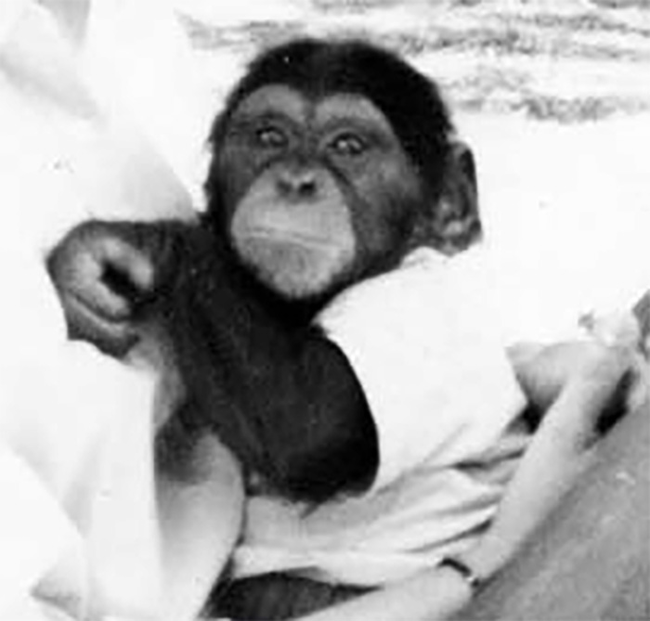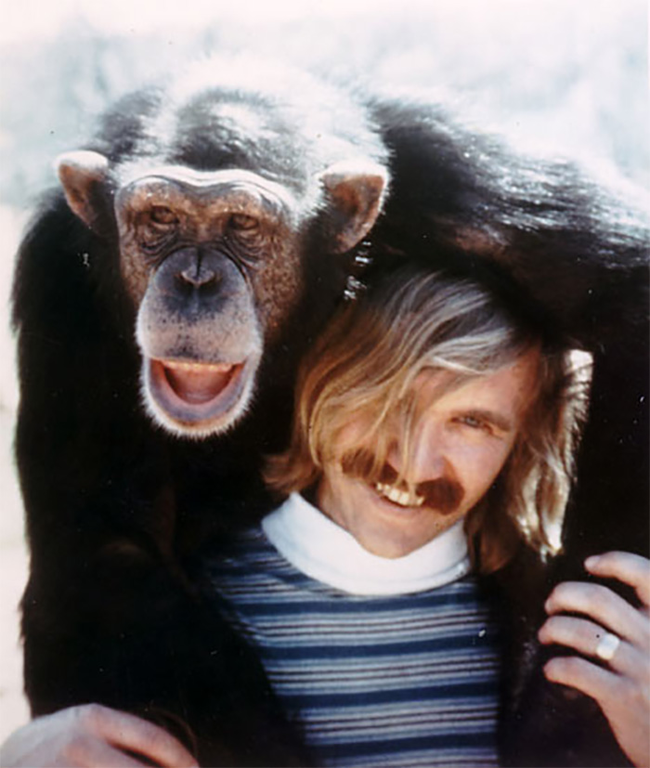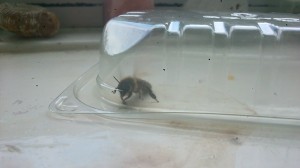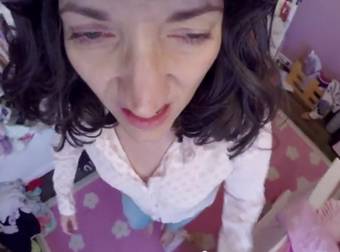For most of us, the separation between our human life and that of the animals around us is as easy as apples and oranges. We are the smarter, more evolved creatures who have been given dominion over all others. And it’s not like they have any emotions, anyway, right?
Except that actually… they do. While we can’t speak for all animals, Washoe the chimpanzee could speak for herself. Rescued by professor Roger Fouts when he was still just an undergrad back in 1966, she was spared the fate of so many other chimpanzees used for brutal science and medical research. Instead, she became the first chimpanzee to be taught American Sign Language.
Fouts and Washoe stuck together for over 30 years, creating an unmistakable emotional bond. She became more and more like another person to Fouts over their years of friendship, aided by her growing vocabulary. Most primates don’t shed tears or show much in the way of outward emotion, which is what led so many to believe they simply had none. Thanks to Washoe’s sign language skils, she was able to communicate her fears, sadness and happiness.
Perhaps the most incredible story is what happened between Washoe and one of the volunteers at the facility.
At age 17, Washoe became enthralled by one of the volunteers, Kat, who had become pregnant. Washoe had given birth to two babies herself, but both had resulted in unfortunate early deaths. When Kat would arrive, Washoe would pay extra close attention to her and sign questions asking about the baby. Then, without warning, Kat didn’t show up — and she stopped showing up for a couple of weeks. When she returned, Washoe acted unusually detached toward her, as if she was offended.
Then Kat explained why she had been missing: she had lost her baby. Washoe signed the word “cry” and “please person hug.”
Washoe never had her own children, but accepted the adoption of a son named Loulis who she in turn taught the sign language. She passed it along without any human interaction encouraging her to do so, but because she simply cared about his well being.
Lucky to be so loved and cared for by Fouts, Washoe passed away of natural causes at age 42 in 2007.
(H/T: LA Times.)
Others like her, however, have fared much worse. Some were released back into the wild only to be killed by humans, others were given over to medical research labs where they were injected with toxins and diseases on top of deplorable living conditions. We could all use an adjustment where this perspective is concerned.






